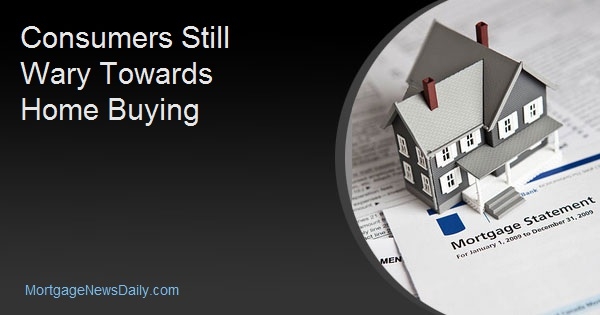
Fannie Mae’s monthly survey of consumers’ attitudes toward buying or selling a home and their own financial situation showed a mixture of sentiments in March. The Home Purchase Sentiment Index (HPSI), which is derived from six questions on the National Housing Survey, rose 3.3 points which brings it slightly higher than its all-time low in November of last year. It is down 11.9 points compared to March 2022. Four of the six components of the Index improved their February level, but the net positive responses of the two components dealing with home buying and selling are lower than a year earlier by double digits. Only 20 percent of those surveyed said it was a good time to buy a home, with which 79 percent disagreed. The 60 percent net positive was 1 point lower than the prior month and down 11 points from its already depressed level in April 2022. Home buying sentiment has been in negative territory since the spring of 2021. Positive opinions about home selling rose 8 points to 58 percent of responses leaving a net positive of 18 percent, This is 35 points lower than the net a year earlier. “Despite the recent banking turbulence, the HPSI increased modestly in March, although it still remains near its historical low,” said Mark Palim, Fannie Mae Vice President and Deputy Chief Economist. “With the spring homebuying season now upon us, a large majority of consumers continue to believe that it’s a bad time to buy a home. Homeowners sharing this belief frequently cited ‘unfavorable mortgage rates’ as the primary reason for their pessimism , further corroborating the often-discussed disincentive – or ‘lock-in effect’ – that many mortgage holders who may be considering moving have toward giving up their lower rates. By contrast, surveyed renters once again indicated that high home prices are their primary concern for buying a home.” Palim continued: “Unsurprisingly, consumers also expressed apprehension about the direction of home prices. In March, there was an even split among respondents who said home prices over the next 12 months will go up compared to those who expect them to go down. With affordability constraints, the lock-in effect, and home price direction uncertainty weighing heavily on consumers’ minds, we maintain our forecast that total home sales for the year will remain subdued.”



